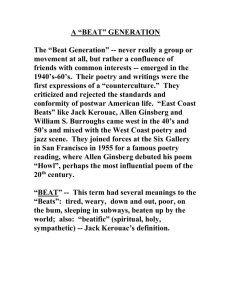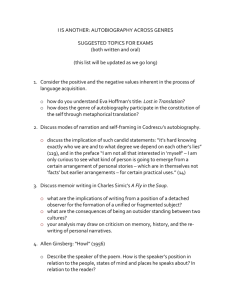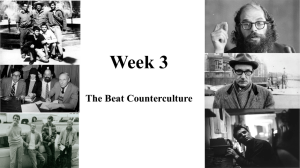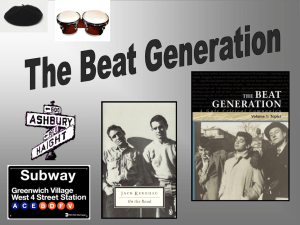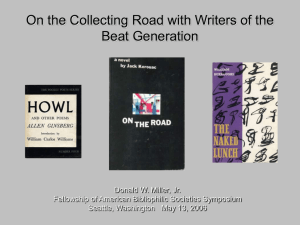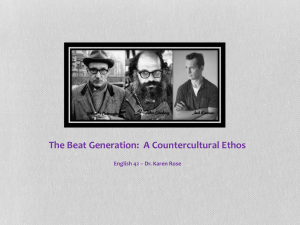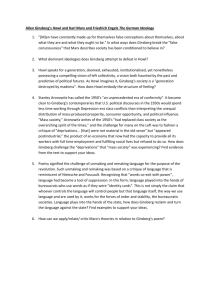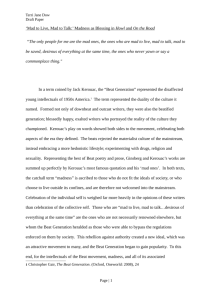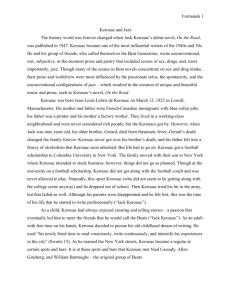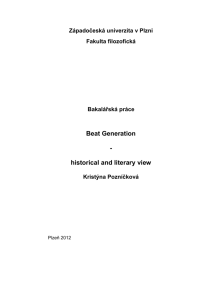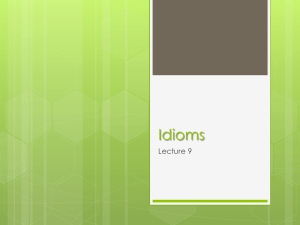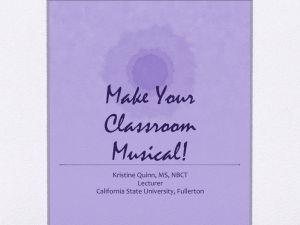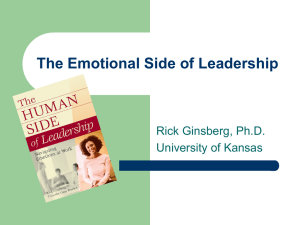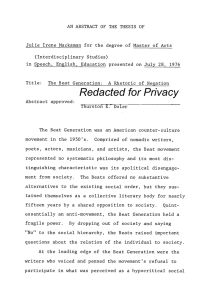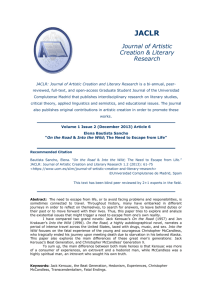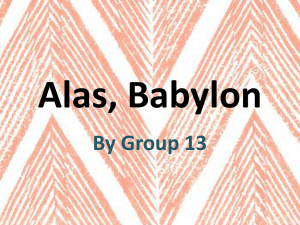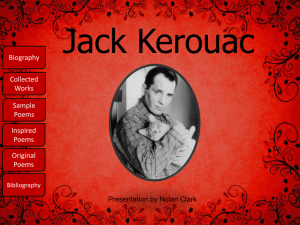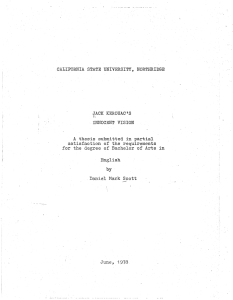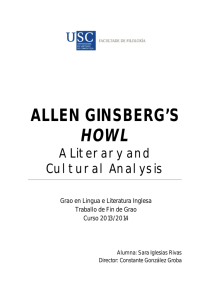Beat Generation Background for Beat Experience class
advertisement
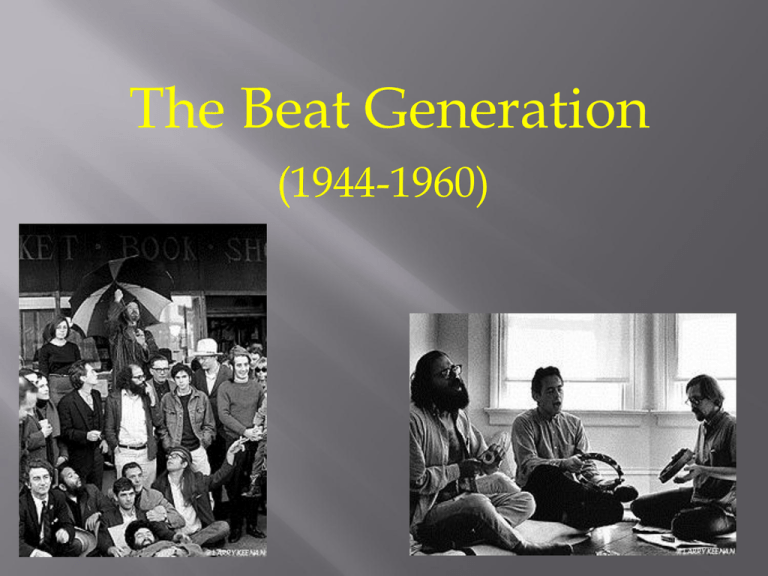
The Beat Generation (1944-1960) The Beat Generation began in 1944 in New York City when Jack Kerouac (22) and Allen Ginsberg (18), both students at Columbia University, and Harvard graduate William S. Burroughs (30) all met through mutual friends. All three men shared a passion for literature, intellectual discussion, philosophy and drug experimentation. 1955 was a landmark year for the Beat Generation. By this time many of the Beats now congregated in San Francisco’s North Beach, an area with a rich Italian immigrant population. City Lights Bookstore, owned by poet Lawrence Ferlinghetti, was the social nexus of the neighborhood The Six Gallery Reading October 1955 The Six Gallery Reading cont. -Put the Beat Generation on the literary map - Ushered in The San Francisco Poetry Renaissance -Allen Ginsberg read his famous poem “Howl” for the first time The Six Gallery cast MC: Kenneth Rexroth Readers Allen Ginsberg Gary Snyder Michael McClure Philip Whalen Philip Lamantia 1957 The Year It Blew Wide Open! The publication of Jack Kerouac’s On The Road and the celebrated obscenity trial for “Howl” brought the Beats into the national spotlight and into mainstream American consciousness. “Beatnik” became a household word. Father of the Beat Generation – He coined the term “Beat” French-Canadian, non-native speaker of English High school football star – awarded a scholarship to Columbia university, where he met Ginsberg and Burroughs Became an alcoholic in later life – died of a stomach hemorrhage Jack Kerouac (1922-1969) On The Road, Kerouac’s most famous novel, was published in 1957. It brought the Beat Generation into the mainstream. The NY Times Book review sealed the deal. The original manuscript was typed on a single sheet of teletype paper 120 feet long. The “Bible” of the Beat Generation Other famous Kerouac novels: The follow up novel after the success of On The Road About Kerouac’s friendship with poet and Zen student Gary Snyder Depicts the North Beach scene, the Six Gallery Reading, and Kerouac’s forays into Buddhism and the High Sierras Details Kerouac’s relationship with an African-American woman, Alene Lee (“Mardou Fox” in the novel Significant in its depiction of an inter-racial relationship in mid-century America Written in three days Style modeled on Bebop jazz Kerouac’s most experimental novel, Compared to Joyce or Proust The middle third of the novel Is transcribed tape recorded conversation Kerouac considered it his masterpiece Not published in Kerouac’s lifetime In Kerouac’s only American television appearance, He read Visions of Cody in lieu of On The Road Allen Ginsberg (1926-1997) Father a high school teacher and minor poet Mother a communist Russian émigré who suffered from severe mental illness Attended Columbia University with intent to be a labor lawyer. Met Burroughs and Kerouac in 1944 and dedicated his life to poetry Became lifelong companion to Peter Orlovsky beginning in the 1950s Literary agent and champion of the Beats Very active in 1960s counterculture and beyond as a practicing Buddhist Ginsberg’s most famous poem First read at the Six Gallery Contained profanity and strong sexual content. Was outlawed for being obscene and pornographic. Published in 1956, “Howl” was taken to trial in 1957. Ultimately won its civil liberties battle and paved the way for many other books to be published in the United States Arguably the most important poem of the second half of the 20th Century William S. Burroughs (1914-1997) Eldest member of the Beat Generation Harvard graduate Met Kerouac and Ginsberg in NYC in 1944 Heroin addict for 15 years Accidentally shot his wife in the head First novel: Junkie Burroughs’s most famous novel Published in 1959 by the Olympia Press in Paris Because of its obscene content, could not be published In the United States until after the “Howl” trial The novel is a series of surrealistic sketches or “routines” originally Sent to Allen Ginsberg in letter form Jack Kerouac came up with the title The Nova Trilogy A science fiction trilogy The Soft Machine The Ticket that Exploded Nova Express Composed in the 1950s in Tangier, Paris (at the Beat Hotel), and London Some of the material is left over from Naked Lunch Utilizes the cut-up and fold-in methods of writing Neal Cassady The hero of On The Road (Dean Moriarty) Source if inspiration for Kerouac and Ginsberg Because of his exuberance, energy, and spontaneity Like Ginsberg, became a countercultural icon of the 1960s
